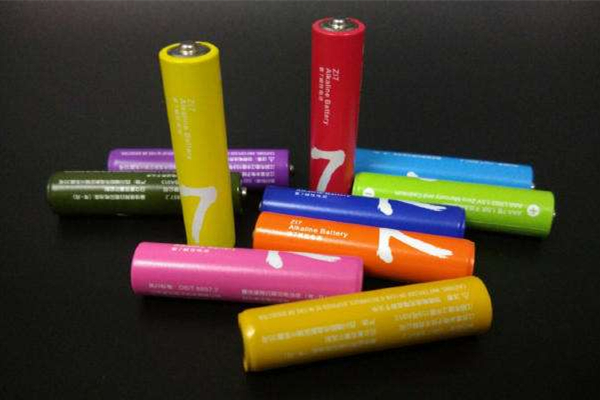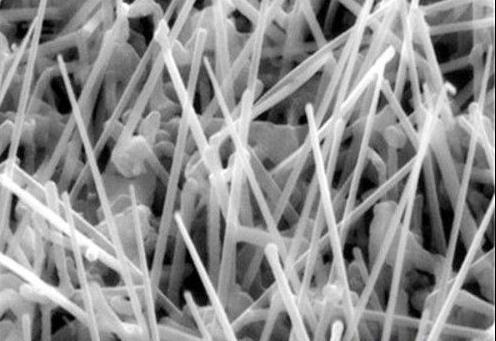You should know more about Lithium Ion battery cycle life
Jul 24, 2019 Pageview:1457
No one can deny that Lithium-ion batteries are the most popular battery technology in the world today. It is not just because they are very powerful, but because they are quite affordable as well. Because of their power, they are being used more and more in Electric vehicles.
In recent discoveries, battery research has focused more on lithium-based batteries than any other technology. This would make someone think that perhaps the future of batteries lies in the use of lithium batteries.
There are several reasons you should trust lithium-ion as the most superior of all battery chemistries. One good example is the increasing applications. Check your Smartphone, your laptop, and any other electric device you may be having, and you will discover they are powered by lithium-ion batteries.
It is important therefore to learn how to keep your batteries safe to serve you longer. The truth is, there are still many issues with lithium-ion. They are not yet matured and need more improvement. But as a battery caregiver, you have a choice to use them in a way that prolongs their life cycle.
Lithium-ion battery cycle life assessment
Several concerns have been raised over the contributions of the lithium-ion batteries, especially in the production of EVs. The automobile industry across the world by, starting from China, is shifting more and more towards using such vehicles.
In many instances, concerns have been regarding the total EV energy profile against internal combustion vehicles. Apart from that, potential battery end-of-life issues have also been a major point of discussion.
This has led to different interested parties carrying out assessments, especially based on detailed life cycle analysis. The aim is to identify possible hot-spots in the life cycle of a Li-Ion battery pack. There are two major points to note in this regard.
· The battery assembly stage: Using five cathode materials and proposed lithium metal anode, one researcher found an energy concern in the assembly stage. Some identified this as a problem, but only for low-throughput plants (those plants regarded as “pioneer”). For at-capacity plants, however, things are different; they don’t pose any energy issues.
· Performance: One of the major reasons why people are changing to EVs is because of environmental concerns. And that is where battery vehicles from either of the facility types mentioned above are a winner. They are way better than conventional vehicles regarding GHG emissions.
· Battery assembly and features. For at-capacity plants, there is more focus on the materials than energy impacts. The cathode materials, for instance, represent 10 – 50% of the energy in that particular battery. The variation depends on the cathode type.
· Battery recycling. This is an economically attractive venture that ensures proper use of batteries, but it can mitigate further life cycle impacts.
In the same study above, an in-depth analysis of battery pack production from cradle-to-gate has revealed more concerns on Li-ion battery usage. Some of the issues addressed include energy consumption, GHG emissions, and emission of other pollutants.
Energy production and consumption depend on the cathode material. For cathodes with large amounts of cobalt and nickel, the intensity of energy production is much higher. Using hydrothermal or solid-state techniques revealed much lower energy out-put. Graphite anode and pure lithium anodes on the other hand affect energy production as well.
In summary, the battery material in the cathode and anode affect the overall mass of the battery. Consequently, the effects extend to energy and emissions tied to battery production/use.
How long do lithium batteries last·
Li-ion batteries have gotten bigger and better. Each production that comes on the market is better than the previous version in terms of energy output.
One of the major advantages of these batteries is their life cycle. They last longer than other battery chemistries because of their high-energy intensity, low capacity discharge. The batteries have a high charging efficiency level as well making them a mark of quality for batteries, making them an ideal technology for energy storage.
There are many ways to know how long your lithium-ion battery will last. First, you can consider the amount of time the battery will provide power in terms of kWhs. Apart from that, you can consider the overall lifespan of the battery, when in service.
Energy Information Administration (EIA) in 2016 discovered that on average, a US home consumed 30 kWh per day. This is the same amount of energy that can be used for solar power systems as well. The home will require a substantial energy storage system in-case there is not much sun.
In the overall lifespan, Lithium batteries can serve you for about three years when used correctly. This is the same period, even for shelf life. However, battery technology has been improving now and then to make them last longer.
How to prolong lithium-ion battery cycle life
How you use your battery matters a lot. As much as we have mentioned three years' lifespan above, this can be increased or decreased depending on how well you use your batteries. Here are some of the best ideas for a longer-lasting battery.
· Check the temperatures. The best way to help your batteries is by keeping them at room temperature. Exposing your batteries, especially fully charged ones, can make your battery explode.
· Get a high capacity Li-ion battery. Check the aging capacity of the battery when purchasing. Instead of buying a spare, therefore, get one that has a high capacity.
· Avoid full discharge. Do not allow your battery to fully discharge. A discharge that goes below 2.5V triggers a safety circuit in the battery rendering it dead. They don’t have charge memory, which is why a draining it completely is not advised.
· Discharge them partially when storing them. If you have an extra battery for your notebook, for instance, consider discharging them to about 40% for prolonged storage. A full charge increases the oxidation, which is not good for your batteries.
Final thought
The way battery technology has improved over the years is quite amazing. Batteries have made the world a better place in terms of environmental concerns. They are the perfect solution for modern energy needs.
Lithium-ion batteries come as chemistry overall. They give much power and can last longer. You can get up to 500 charges/discharge cycles from these batteries by following proper use. We have shared the best knowledge about the use and better output to make it easier for you.
- Prev Article: Discussion on 18650 sleeves
- Next Article: You should know more about lithium thionyl chloride batteries
Leave Message
Hottest Categories
-
Hottest Industry News
-
Latest Industry News











